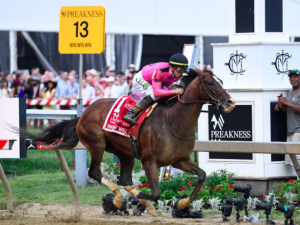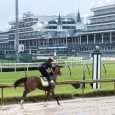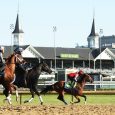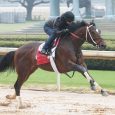By Miriam Lee

War of Will wins the Preakness Stakes – US Racing Photo
Two years before the first Kentucky Derby, in 1973 Pimlico ran a stakes race for 3-year-olds during its first-ever spring race meet. Maryland governor Oden Bowie named the race, which was set at a distance of 1 ½ miles, in honor of a horse named Preakness who was bred by from Milton Holbrook Sanford’s Preakness Stud in Preakness, Wayne Township, New Jersey. Peakness won the Dinner Party Stakes on the first day of Pimlico opened in 1870).
The name Preakness was said to have come from the Native American name “Pra-qua-les” or “Quail Woods” for the area in New Jersey where the farm stood.
Another legend tied to the Preakness and the actual horse its named for involves the horse’s jockey. After the win in the Dinner Party Stakes jockey Billy Hayward is said to have untied a silk bag of gold coins that hung from a wire stretched across the track from the judges’ stand. This is alleged to be where the term “wire” was used to indicate the finish line and how the money horses earned were called “purses” though the actual term “purse” had been in use long before the first Preakness.
The first Preakness was held on May 27, 1873 and drew just seven runners. Survivor captured the inaugural edition by ten lengths and earned $2,050. This was the largest margin of victory until 2004, when Smarty Jones won by 11 1/2 lengths.
In 1890 Morris Park Racecourse in the Bronx in New York hosted the Preakness Stakes and the race was opened to ages three up and was run under handicap conditions. The race was won by a five-year-old horse named Montague and after, no Preakness was contested for three years. From 1894 through 1908, the Preakness held at Gravesend Race Track on Coney Island and In 1909 it returned to Pimlico.
Seven editions of the Preakness Stakes have been run under handicap conditions beginning 1890 and again in the from 1910 to 1915. During these years, the race was known as the Preakness Handicap.



